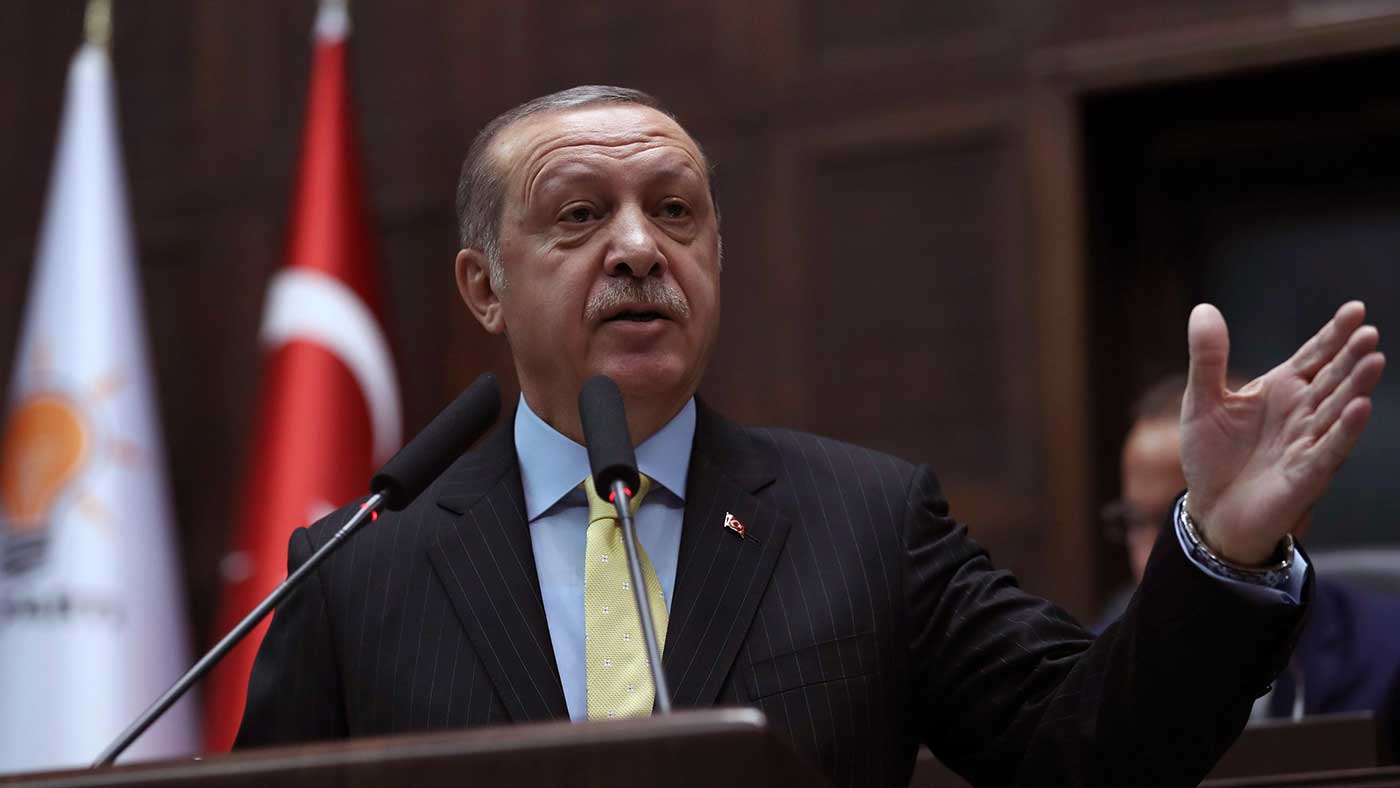Turkey’s Erdogan begins new term with purge of 18,600 civil servants
Controversial leader acquires more power under new executive presidential system

A free daily email with the biggest news stories of the day – and the best features from TheWeek.com
You are now subscribed
Your newsletter sign-up was successful
Recep Tayyip Erdogan takes office today as Turkey’s executive president with vastly expanded powers as more than 18,600 people are purged from government jobs.
Erdogan will take his oath in the Turkish parliament, followed by a lavish ceremony at his nearby palace in Ankara. His inauguration officially ushers in a new executive presidency, which replaces a parliamentary system in which the prime minister and government held most power, reports Reuters.
The post of prime minister will be scrapped and the president will have the power to choose his own cabinet, chair its meetings, form and regulate ministries and remove civil servants, all without parliamentary approval.
The Week
Escape your echo chamber. Get the facts behind the news, plus analysis from multiple perspectives.

Sign up for The Week's Free Newsletters
From our morning news briefing to a weekly Good News Newsletter, get the best of The Week delivered directly to your inbox.
From our morning news briefing to a weekly Good News Newsletter, get the best of The Week delivered directly to your inbox.
The dismissed state employees include 9,000 police personnel and more than 6,000 officers from the country’s armed services. Three newspapers, one TV channel and 12 associations have also been shut down, amid claims that they posed a security risk to the state, reports Bloomberg.
The government has been issuing decrees, bypassing parliament, since a state of emergency was imposed in the wake of an attempted military coup in July 2016. Erdogan promised to lift the state of emergency rule following last month’s election, in which he was re-elected with 53% of the vote.
However, his new powers enable him to “issue decrees with the force of law” and he “can still declare a similar state of emergency giving authorities powers to restrict basic rights and freedoms when deemed necessary”, says Bloomberg.
“The recent purge is a further consolidation of the grip on power that Erdogan has been working on particularly since the attempted coup,” said Ghanem Nuseibeh, founder of London-based political risk consultants Cornerstone Global Associates. “The purge is surprising in its magnitude and many will accuse Erdogan of going after anyone who opposes him.”
A free daily email with the biggest news stories of the day – and the best features from TheWeek.com
The government says that the sacked civil servants are followers of US-based Turkish preacher Fethullah Gulen, whom it accuses of masterminding the coup. He denies the charge.
-
 How the FCC’s ‘equal time’ rule works
How the FCC’s ‘equal time’ rule worksIn the Spotlight The law is at the heart of the Colbert-CBS conflict
-
 What is the endgame in the DHS shutdown?
What is the endgame in the DHS shutdown?Today’s Big Question Democrats want to rein in ICE’s immigration crackdown
-
 ‘Poor time management isn’t just an inconvenience’
‘Poor time management isn’t just an inconvenience’Instant Opinion Opinion, comment and editorials of the day
-
 Epstein files topple law CEO, roil UK government
Epstein files topple law CEO, roil UK governmentSpeed Read Peter Mandelson, Britain’s former ambassador to the US, is caught up in the scandal
-
 Iran and US prepare to meet after skirmishes
Iran and US prepare to meet after skirmishesSpeed Read The incident comes amid heightened tensions in the Middle East
-
 Israel retrieves final hostage’s body from Gaza
Israel retrieves final hostage’s body from GazaSpeed Read The 24-year-old police officer was killed during the initial Hamas attack
-
 China’s Xi targets top general in growing purge
China’s Xi targets top general in growing purgeSpeed Read Zhang Youxia is being investigated over ‘grave violations’ of the law
-
 Panama and Canada are negotiating over a crucial copper mine
Panama and Canada are negotiating over a crucial copper mineIn the Spotlight Panama is set to make a final decision on the mine this summer
-
 Why Greenland’s natural resources are nearly impossible to mine
Why Greenland’s natural resources are nearly impossible to mineThe Explainer The country’s natural landscape makes the task extremely difficult
-
 Iran cuts internet as protests escalate
Iran cuts internet as protests escalateSpeed Reada Government buildings across the country have been set on fire
-
 US nabs ‘shadow’ tanker claimed by Russia
US nabs ‘shadow’ tanker claimed by RussiaSpeed Read The ship was one of two vessels seized by the US military